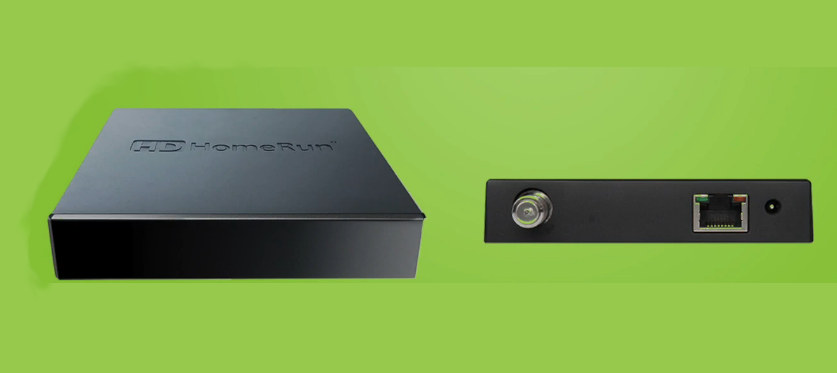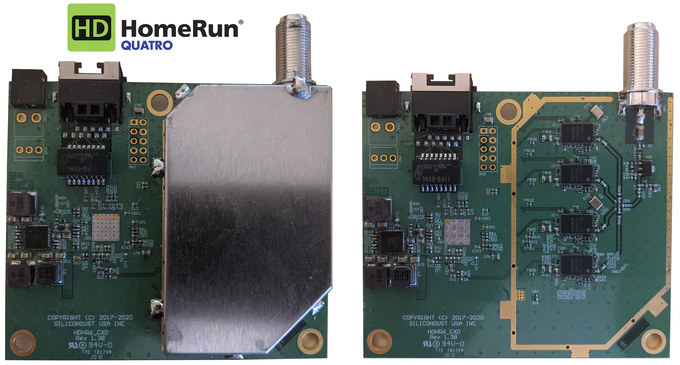If your country broadcasts free-to-air TV channels over ATSC, and you want to watch 4K HDR channels, you’d need to hardware compatible with the latest ATSC 3.0 standard.
One way to achieve this is to connect an ATSC 3.0 USB TV tuner to a computer or laptop, or get a set-top box with one or more built-in tuner. ATSC 3.0 trials will start this year in the US, and SiliconDust has just introduced HDHomeRun QUATRO 4K streamer that comes with four ATSC tuners, two of which support ATSC 3.0 standard, as well as one Ethernet port.
The company did not exactly release the complete specifications for the device, but here’s what we know so far:
- Four ATSC Tuners all using QAM256/64 modulation:
- 2x ATSC 3.0 & 8VSB (ATSC 1.0) tuners
- 2x 8VSB only tuners
- RF input for roof or indoor antenna
- 100Mbps Ethernet (enough to stream four channels at once)
The streamer will enable users to watch up to 4 ATSC 3.0 sub-channels across the 2 ATSC 3.0 tuners in high-definition, and support ATSC 3.0 interactive apps, as well as DASH transport video. This will allow users to watch free-to-air TV on all platforms supporting the HDHomeRun app including Windows 10, Apple Mac, XBox One, 64-bit iOS & Android devices, as well as HEVC capable Android TV devices and FireTV products. The company also claims third party compatibility with Plex and Channels using MPEG-TS streams.
SiliconDust is also offering HDHR5-4K DEV model for developers only. There does not seem to any differences in hardware compared to the consumer version, but the firmware will allow you to capture data in real-time and retrieve it with a curl/wget command. Data captured will include ALP packets, IPv4 packets, tar files with DASH files, TS generated files from DASH/ROUTE or MMTP content.
Network captures (PCAP) can be visualized in Wireshark, TAR files can be extracted and played via a web server, while TS streams can be played in any video (SW/HW) player with the right codecs.
HDHomeRun QUATRO 4K has been launched on Kickstarter and is well-passed its $50,000 target with over $200,000 raised so far. The consumer model requires a $199 pledge, while the developer edition goes for $299. Shipping appears to be included, and only available to the US.

Jean-Luc started CNX Software in 2010 as a part-time endeavor, before quitting his job as a software engineering manager, and starting to write daily news, and reviews full time later in 2011.
Support CNX Software! Donate via cryptocurrencies, become a Patron on Patreon, or purchase goods on Amazon or Aliexpress






